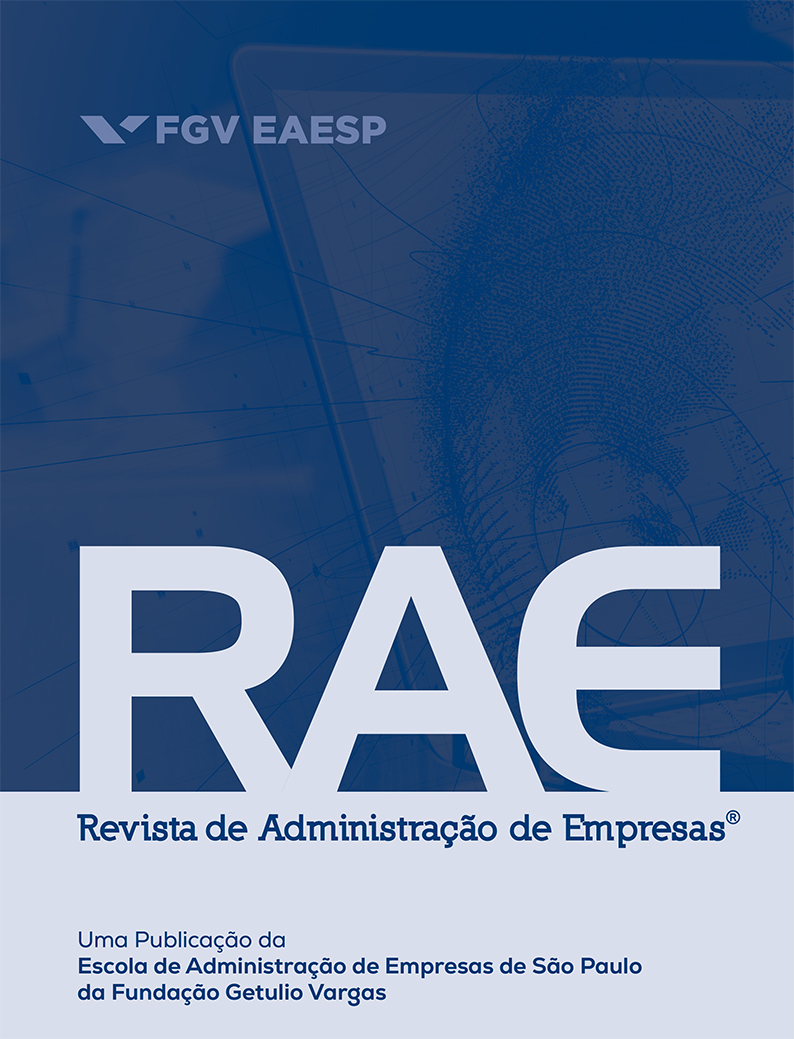Sustentabilidade e o papel da gestão de recursos humanos
Conteúdo do artigo principal
Downloads
Métricas
Detalhes do artigo
A RAE compromete-se a contribuir com a proteção dos direitos intelectuais do autor. Nesse sentido:
- adota a licença Creative Commoms BY (CC-BY) em todos os textos que publica, exceto quando houver indicação de específicos detentores dos direitos autorais e patrimoniais;
- adota software de detecção de similaridades;
- adota ações de combate ao plagio e má conduta ética, alinhada às diretrizes do Committee on Publication Ethics (COPE)
Referências
Aust, I., Matthews, B., & Muller-Camen, M. (2020). Common good HRM: A paradigm shift in sustainable HRM? Human Resource Management Review, 30(3), 100705. doi: 10.1016/j.hrmr.2019.100705
Barney, J. (1991). Firm resources and sustained competitive advantage. Journal of Management, 17(1), 99-120. doi: 10.1177/014920639101700108
Becker, B. E., Huselid, M. A., & Ulrich, D. (2001). The HR scorecard: Linking people, strategy, and performance. Boston, MA: Harvard Business School Press.
Beer, M., Boselie, P., & Brewster, C. (2015). Back to the future: Implications for the field of HRM of the multistakeholder perspective proposed 30 years ago. Human Resource Management, 54(3), 427-438. doi: 10.1002/hrm.21726
Beer, M., Spector, B., Lawrence, P. R., Mills, D. Q., & Walton, R. E. (1984). A conceptual view of HRM. In M. Beer, B. Spector, P. R. Lawrnce, D. Q Mills, & R. E. Walton (Eds.) Managing human assets. New York, USA: The Free Press, chapter 2, pp.15-38
Bonini, S., & Swartz, S. (2014). Profits with purpose: How organizing for sustainability can benefit the bottom line. McKinsey on Sustainability & Resource Productivity, 2(1), 1-15. Retrieved from https://www.mckinsey.de/~/media/mckinsey/industries/consumer%20packaged%20goods/our%20insights/getting%20the%20most%20out%20of%20your%20sustainability%20program/srp_2014_profits%20with%20purpose.pdf
Bonner, J. & Friedman, A. (2013) Corporate social responsibility: who's responsible? Organizational Communication Research Center at New York University. Retrieved from https://apps.prsa.org/intelligence/partnerresearch/partners/nyu_scps/corporatesocialresponsibility.pdf
Brunton, M., Eweje, G., & Taskin, N. (2017). Communicating corporate social responsibility to internal stakeholders: Walking the walk or just talking the talk?. Business Strategy and the Environment, 26(1), 31-48. doi: 10.1002/bse.1889
Clarke, T., & Clegg, S. (2000). Management paradigms for the new millennium. International Journal of Management Reviews, 2(1), 45-64. doi: 10.1111/1468-2370.00030
Deloitte (2021) A call for accountability and action: The Deloitte Global 2021 Millenial and Gen Z Survey Deloitte. Retrieved from https://www2.deloitte.com/content/dam/Deloitte/global/Documents/2021-deloitte-global-millennial-survey-report.pdf
Donaghey, J., & Reinecke, J. (2018). Global supply chains and employment relations. In A. Wilkinson, T. Dundon, J. Donaghey and a. Colvin (eds) The Routledge Companion to Employment Relations (pp. 342-356). London, UK: Routledge.
Dunphy, D., Beneveniste, J., Griffiths, A., & Sutton, P. (Eds.) (2000). Sustainability: The corporate challenge of the 21st Century. Sydney, Australia: Allen Unwin.
Ehnert, I (2008). Sustainable human resource management: A conceptual and exploratory analysis from a paradox perspective. Berlin, Germany: Physica-Verlag/Springer.
Fabio, A. Di. (2017). The psychology of sustainability and sustainable development for well-being in organizations. Frontiers in Psychology, 8, 1534. doi: 10.3389/fpsyg.2017.01534
Kramar, R. (2014). Beyond strategic human resource management: Is sustainable human resource management the next approach? The International Journal of Human Resource Management, 25(8), 1069-1089. doi: 10.1080/09585192.2013.816863
Lawler, E. E. (2017). Reinventing talent management: Principles and practices for the new world of work. California, USA: Berrett-Koehler Publishers.
Pfeffer, J. (2016). Why the assholes are winning: Money trumps all. Journal of Management Studies, 53(4), 663-669. Recuperado de https://onlinelibrary.wiley.com/doi/full/10.1111/joms.12177
Prins, P. De, Beirendonck, L. Van, Vos, A. De, & Segers, J. (2014). Sustainable HRM: Bridging theory and practice through the 'Respect Openness Continuity (ROC)' model. Management Revue, 25(4), 263-284. Retrieved from https://www.jstor.org/stable/24710112
Prins, P. De, Stuer, D., & Gielens, T. (2020). Revitalizing social dialogue in the workplace: The impact of a cooperative industrial relations climate and sustainable HR practices on reducing employee harm. The International Journal of Human Resource Management, 31(13), 1684-1704. doi: 10.1080/09585192.2017.1423098
Renwick, D. W., Redman, T., & Maguire, S. (2013). Green human resource management: A review and research agenda. International Journal of Management Reviews, 15(1), 1-14. doi: 10.1111/j.1468-2370.2011.00328.x
Sarvaiya, H., Eweje, G., & Arrowsmith, J. (2018). The roles of HRM in CSR: Strategic partnership or operational support? Journal of Business Ethics, 153(3), 825-837. Retrieved from https://link.springer.com/article/10.1007/s10551-016-3402-5
Stahl, G. K., Brewster, C. J., Collings, D. G., & Hajro, A. (2020). Enhancing the role of human resource management in corporate sustainability and social responsibility: A multi-stakeholder, multidimensional approach to HRM. Human Resource Management Review, 30, 100708. doi: 10.1016/j.hrmr.2019.100708
Tanova, C., & Bayighomog, S. W. (2022). Green human resource management in service industries: the construct, antecedents, consequences, and outlook. The Service Industries Journal, 42(5-6), 412-452. doi: 10.1080/02642069.2022.2045279
Wilkinson, A., Hill, M., & Gollan, P. (2001). The sustainability debate. International Journal of Operations & Production Management, 21(12), 1492-1502. doi: 10.1108/01443570110410865
World Commission on Environment and Development. (1987). Our common future. Oxford: Oxford University Press.







